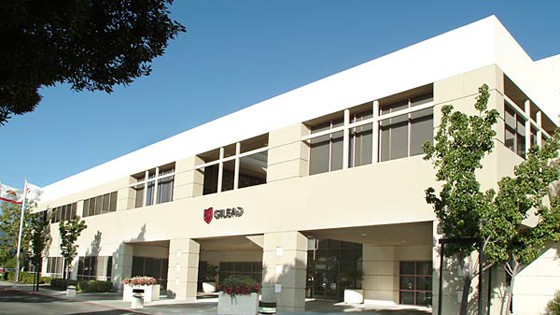
Boom and bust has been a feature of the hepatitis C virus treatment market, but as its own franchise starts to show some weakness, Gilead is hoping to buck that trend.
The US pharma company has reaped the benefits of stellar sales for its directly-acting HCV therapies since it first launched Sovaldi (sofosbuvir) in 2013 and two-drug follow-up Harvoni (sofosbuvir/ledipasvir) the following year.
However, sales showed a sizeable fall-off in the second quarter of the year – down around a third in the US and Europe and 43% in Japan – and overall fell by around $900m (19%) to $4.0bn.
Gilead attributed the decline in HCV sales to a slowdown in the rate of eligible HCV patients presenting for treatment, in particular sicker patients with liver fibrosis who were among the first to gain access to the new drugs. As these patients are treated with them for longer, shortening treatment durations are also a factor, along with a price cut in Japan and healthcare budget restrictions in countries like the UK.
New entrants such as AbbVie’s Viekirax (paritaprevir, ombitasvir and ritonavir) and Exviera (dasabuvir) and Merck & Co’s Zepatier (elbasvir/grazoprevir) have also played a role, although Gilead maintains that this is happening mainly in the Medicaid market sector in the US where access to the newer therapies remains a little more restricted to less sick patients.
The big question is whether the HCV market will implode – as occurred with the HCV protease inhibitors – or experience a slow and managed decline as the pool of infected patients starts to dwindle.
Gilead chief executive John Milligan said that increasing diagnosis rates will help prevent a dramatic fall-off, as will a shift towards treatment of less severely ill patients. In the US alone there are an estimated 3m infected people, with just over half of those diagnosed at present, he noted.
“I think … there will continue to be a gradual decline in new patient starts, but an equilibrium will be eventually hit,” he told investors.
Gilead is looking to the future with new universal two-drug regimen Epclusa (sofosbuvir/velpatasvir) – which started to build inventory in the quarter after approval in the US last month – as well as a triplet therapy based on sofosbuvir, velpatasvir and voxilaprevir that is in four late-stage trials.
Acquisition interest?
The maturing HCV franchise was offset by gains in Gilead’s HIV drugs and other therapies, but almost inevitably led to suggestions that the company should consider making further acquisitions to bolster its portfolio.
Gilead has tended to be less prone to making licensing deals than some of its big biotech peers, but when it has invested – such as its $12bn deal to buy Pharmasset and effectively bolt on its HCV franchise – the returns have been impressive. Now, investors are concerned that too much caution could lead to a reversal of fortunes.




